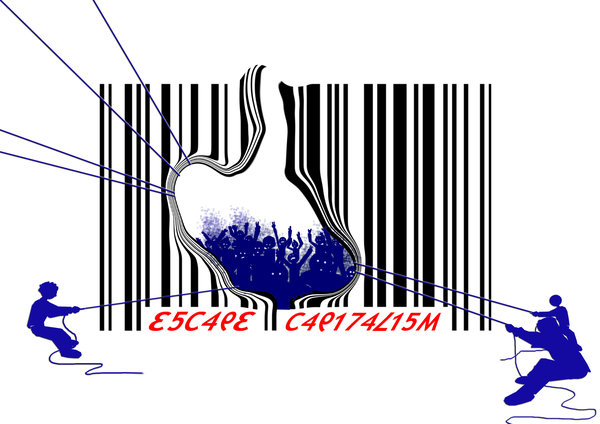In the past year, we have launched a survey worldwide for mapping degrowth realities in the world. 114 organisations answered to the call, with nearly 3,000 active people engaged, mostly located in Europe but also in North and South America, Philippines, Tunisia, Turkey, etc. On August 20th 2018, some members from each of them met for the first time in Freetown Christiania (Copenhagen, Denmark). We exchanged good practices around ecological sustainability and social equity, discussed about the future of the planet, and initiated several international working groups (activists and practitioners; researchers; politics; artists; collective actions; communication; education; etc.) that later met throughout the 6th international degrowth conference, which took place in Malmo, Sweden (August 21-25). Since then, such groups have been working in order to provide opportunities for many people in the world to engage in the degrowth movement locally as well as to diffuse degrowth (theoretically and practically) in their own habitats. As an example, on the 1st June 2019 will be launched the “Global Degrowth Day - Good Life for All”, with multiple actions all over the world (further information will be available soon). Everyone is welcome to join and animate such groups (you can find attached the call for activism and research groups)! You can find the map of the first degrowth realities in the world here. In the future the map will be automated. Until then, if your organisation wants to be mapped, please fill the survey. At the same time, you can find an index to get in contact with the groups, as well as a set of tools for communication and collaboration on https://degrowth.net/. For further information about how to get involved, please visit https://degrowth.net/act or write to activism@groups.degrowth.net The Support Group of the international degrowth conferences (pro tempore facilitator of this process)

Green growth advocates praise resource efficiency for its potential to incentivize the economy and lower its ecological impact. On the other hand, the Jevons Paradox, describes multiple situations (or rebound effects) in which increased efficiency leads to further consumption (either direct or indirect) which offsets the initial ecological benefits achieved. In this piece, I join this discussio...
Finally it is done: all texts from the project "Degrowth in Movement(s)" to be published in English are now available online. Representatives from different social movements share their perspective on degrowth and illustrate commonalities, differences and points of critique. In Germany, last year's publication of the respective German texts, videos and pod casts marked the kick-start for an ope...

By Inez Aponte Humans are storytelling beings. In fact one could argue that it is impossible to make sense of the world without story. Storytelling is how we piece together facts, beliefs, feelings and history to form something of a coherent whole connecting us to our individual and collective past, present and future. The stories that help make meaning of our lives inform how we shape and re-...